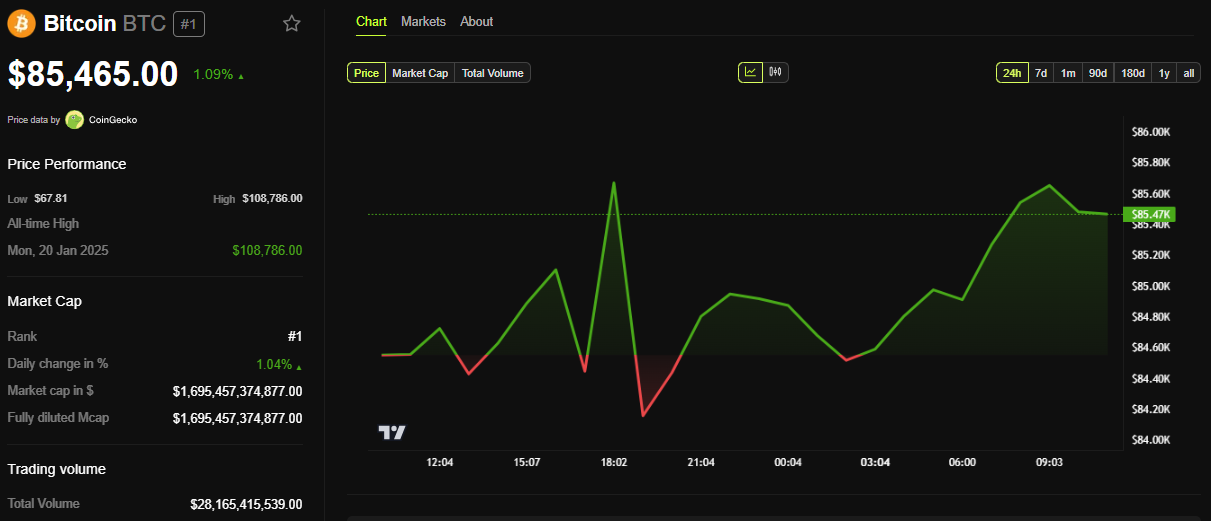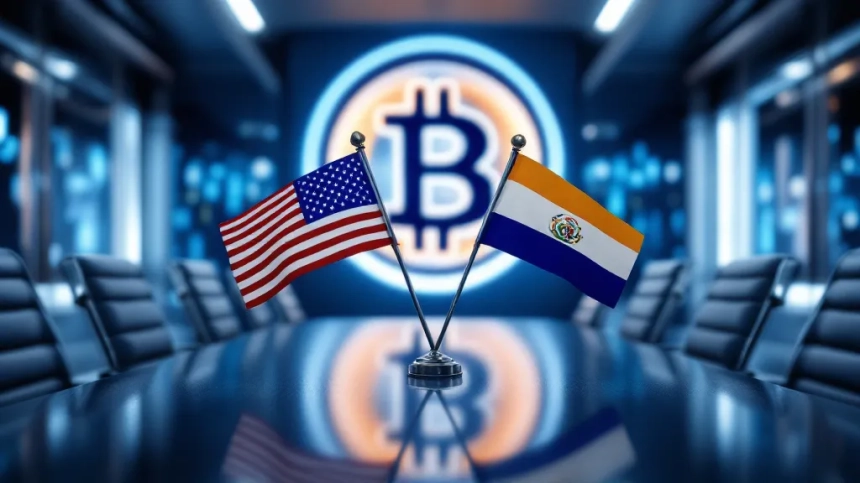According to Bo Hines, Executive Director of the Presidential Advisory Committee on Digital Assets, the Trump administration may consider using tariff revenues to build a national Bitcoin reserve.
This is a notable change, considering the recent indication that revenues from gold sales would support the Bitcoin reserve.
Trump Tariff Revenues to Be Used for US Bitcoin Reserve
Bo Hines explained this possibility in a recent interview. He mentioned the need for the US to act quickly in the global competition for Bitcoin accumulation.
In an interview with Thinking Crypto on Tuesday, Hines emphasized that the US must compete globally in Bitcoin. He highlighted creating a Strategic Bitcoin Reserve (SBR) through a budget-neutral method, including new funding mechanisms like tariff revenues.
"The SBR recognizes the value of Bitcoin and shows how we can utilize it for the American people. Bitcoin has a limited quantity, and I believe an accumulation competition will eventually occur." – Bo Hines, statement
He reiterated this in an interview with Anthony Pompliano, founder and CEO of Professional Capital Management. Bo Hines discussed tariffs, Bitcoin, and gold revaluation, identifying them as key elements of the administration's macroeconomic strategy.
"Strategic reserves are just the beginning. We are thinking about assets that can strengthen the American people in the long term and protect us from global shocks." – Bo Hines, statement to Pompliano
This plan differs from the proposal by Wyoming Republican Senator Cynthia Lummis. BeInCrypto reported that she introduced a bill to sell part of the Federal Reserve's gold to increase government Bitcoin holdings.
"We will convert excess reserves from 12 Federal Reserve banks into Bitcoin over 5 years. We have the money now." – Senator Lummis, speaking at Bitcoin 2024 Conference in July
The concept of using tariff revenues to purchase Bitcoin is new. However, these moves could redefine the role of digital assets in US economic strategy. This reflects a broader ideological shift of treating digital assets as national economic tools rather than speculative instruments.
Cryptocurrency supporters reacted enthusiastically. Influencer Crypto Rover assessed the tariff-based Bitcoin acquisition plan as "very positive", reflecting broader market sentiment.
However, some experts warn the policy could backfire. Cardano's founder Charles Hoskinson questioned the effect of tariffs and warned that future government-imposed cryptocurrency taxes might be ineffective.
Meanwhile, others warn that Trump's aggressive tariff policy could weaken US Bitcoin mining dominance. Hardware costs and international trade barriers could harm domestic miners, especially if Chinese mining equipment is additionally taxed or restricted.
Despite these complexities, the administration appears resolute. Hines hinted at stablecoin legislation and the potential integration of blockchain technology into banking infrastructure. He said this would strengthen law enforcement capabilities in cryptocurrency and signal a multifaceted strategy.
Hines's statements came amid broader financial changes. Reports suggest the Trump administration is considering replacing Federal Reserve Chair Jerome Powell.
With increasing inflation pressures and trade tensions with China escalating, there are speculations that a more cryptocurrency-friendly Fed chair could align the administration's digital asset goals with monetary policy.
As geopolitical tensions rise and central banks compete to define digital currency strategies, the US appears to be moving towards a more decisive stance.

According to BeInCrypto data, Bitcoin is currently trading at $85,465. It has risen by approximately 1.09% in the last 24 hours.







